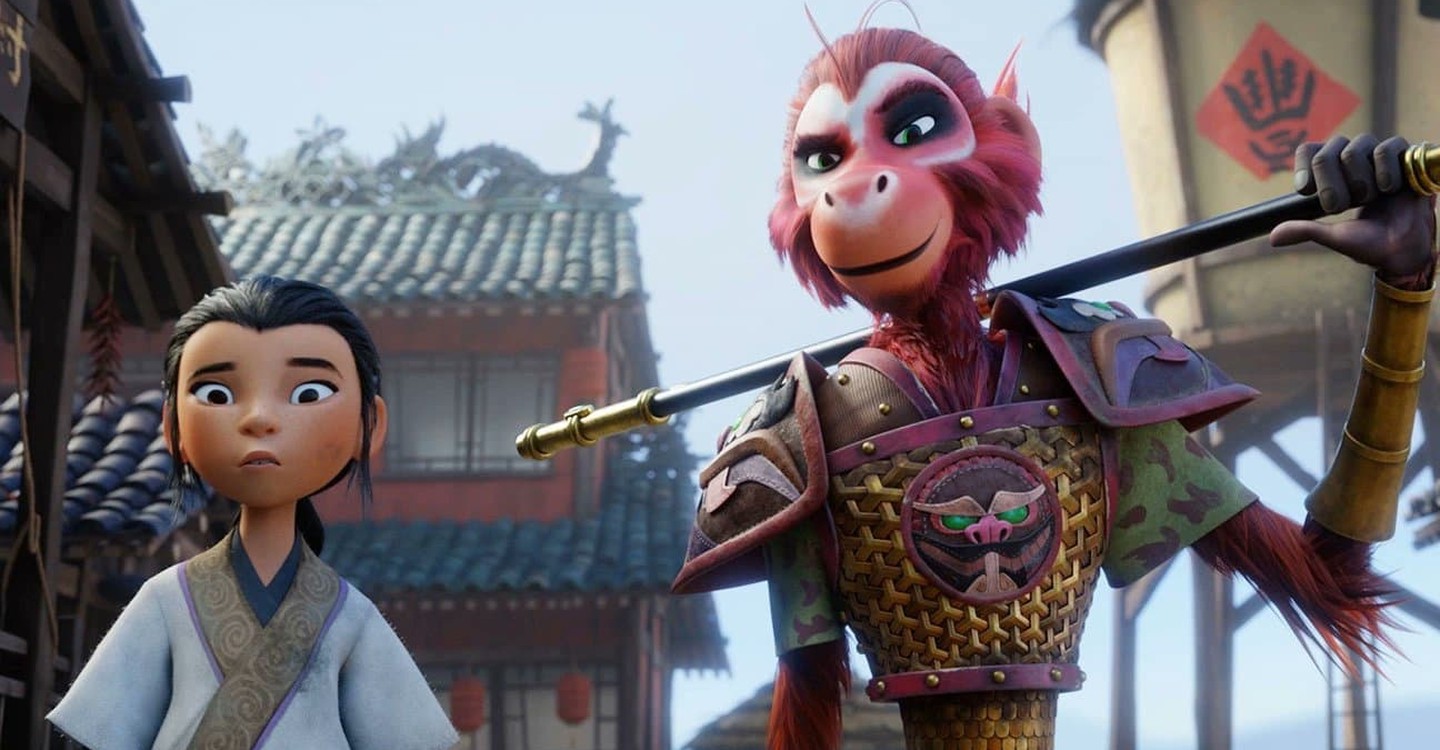Release Date: August 18, 2023
“The Monkey King,” now available for streaming on Netflix, brings an animated adaptation of the beloved Mandarin Chinese character, Sun Wukong, to the screen. Despite its promising premise and the involvement of notable figures like executive producer Stephen Chow, the film falls flat in its execution, leaving audiences yearning for more.
From the start, “The Monkey King” struggles to find its footing, delivering an experience that can only be described as aggressively mediocre. Clocking in at a seemingly interminable 96 minutes, the film fails to strike a balance between humor, heart, and action, making it a challenge even for viewers in search of a lighthearted family adventure.
While the tales of Sun Wukong have been told for generations through various mediums like manga, TV series, and films, this particular adaptation seems to lack the cultural specificity that could have given it an edge. Director Anthony Stacchi, known for his work on “Open Season” and “The Boxtrolls,” fails to infuse the film with the genuine cultural resonance needed to elevate it beyond a run-of-the-mill hero’s journey.
The film revolves around the titular Monkey King, voiced with inconsistent charm by Jimmy O. Yang, who embarks on a quest for immortality by vanquishing 100 demons with his magical staff, voiced by Nan Li. This intriguing premise, however, loses its spark in the transition to the screen, resulting in a lackluster rendition of a potentially exciting concept. A partnership with a girl named Lin, voiced by Jolie Hoang-Rappaport, provides some much-needed structure, but even this dynamic falls short of its potential.
The most captivating character emerges in the form of the Dragon King, brought to life with captivating flair by Bowen Yang of “Saturday Night Live.” This singing, dancing, and power-hungry creation adds a much-needed dose of excitement to the film’s final act, injecting well-crafted fight choreography into the narrative. It’s in these moments that the film briefly captures the spirit of martial arts whimsy reminiscent of Stephen Chow’s works.
Despite the sporadic moments of inspiration, “The Monkey King” often stumbles into monotony, interrupting its momentum with generic conversations between Monkey and Lin or other episodic encounters. These interludes, often accompanied by a heavy-metal soundtrack that confuses noise for excitement, only further emphasize the film’s missed potential.
In its attempt to impart meaningful lessons, the film’s script by Ron J. Friedman, Stephen Bencich, and Rita Hsiao introduces themes of power, self-awareness, and belief. The climax, featuring the actual Buddha, offers a chance for deeper reflection, though it often feels like a mere prompt rather than a genuine conversation starter.
Considering Netflix’s recent successes in the animation genre, such as “Guillermo del Toro’s Pinocchio” and “The Mitchells vs. the Machines,” expectations were high for “The Monkey King” to become a surprise animated classic of 2023. Unfortunately, it falls far short of this mark, failing to leave a lasting impression or resonate as a standout within the ever-expanding realm of animated storytelling.
In conclusion, “The Monkey King” struggles to find its unique voice and cultural significance, ultimately succumbing to mediocrity. While it has moments of potential, its lack of ambition and inconsistent execution prevent it from ascending to the ranks of animated greatness. As audiences navigate the vast landscape of streaming options, this particular journey with the Monkey King may not be one worth embarking upon.

